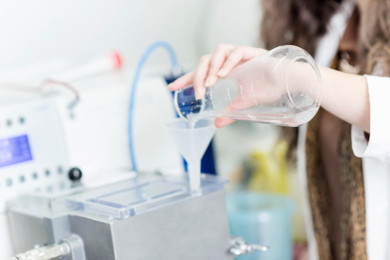Both irrigation water quality and proper irrigation management are critical to successful crop production. The quality of the irrigation water may affect both crop yields and soil physical conditions, even if all other conditions and cultural practices are favorable/optimal. In addition, different crops require different irrigation water qualities. Therefore, testing the irrigation water prior to selecting the site and the crops to be grown is critical. The quality of some water sources may change significantly with time or during certain periods (such as in dry/rainy seasons), so it is recommended to have more than one sample taken, in different time periods.The parameters which determine the irrigation water quality are divided to three categories: chemical, physical and biological. In this review, the chemical properties of the irrigation water are discussed.The chemical characteristics of irrigation water refer to the content of salts in the water as well as to parameters derived from the composition of salts in the water; parameters such as EC/TDS (Electrical Conductivity/ Total Dissolved Solids), SAR (Sodium Adsorption Ratio) alkalinity and hardness.
Metals Analysis
Analyzing the metals in our environmental waters is important because many heavy metals pose a serious threat to our health. Arsenic (metalloid), cadmium, lead, and mercury are among the leading metals found in water. Because of their toxicity, they are also listed in the National Primary Drinking Water Regulations. You may be familiar with them, but do you know the following facts?
Toxicity Package
The Toxicity Package is one of the most important packages you could look at getting when looking at submitting a test sample. It includes testing for Ammonia(Both Pre and Post Fish), Residential Chlorine, Alkalinity, Dissolved Solids, Hardness,and Conductivity. Because of the extensive nature of this testing please allow for 5 days of prior notice to the samples arrival.
Effluent Package
From the lab to the field we have you cover! Talk to us today!
Need your water tested? We can help, find out how below!
We can be found in Gibbon, NE by the overpass on HWY 30!


